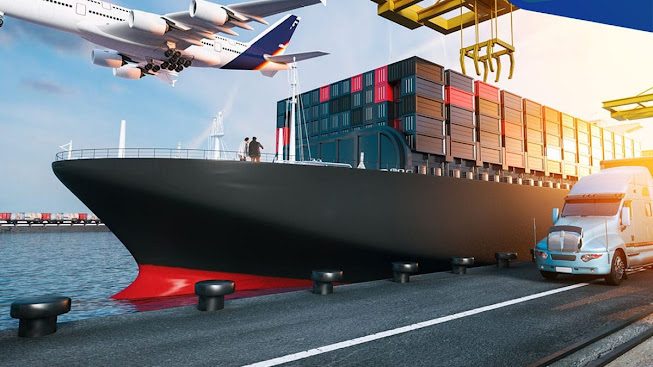Navigating the Warehouse Maze: Advanced Tracking Technology for Air Cargo Shipments
In the complex and bustling world of air cargo warehouses, precision and efficiency are paramount. The ability to track shipments, inventory, and assets with precision has become a game-changer in this industry. In this blog post, we will explore the cutting-edge tracking technology that has transformed air cargo warehouses, providing a deeper understanding of its benefits and applications.
| Navigating the Warehouse Maze: Advanced Tracking Technology for Air Cargo Shipments |
Understanding Advanced Tracking Technology
Before we delve into the advantages, let's grasp what advanced tracking technology encompasses:
- RFID (Radio-Frequency Identification): RFID tags and readers enable real-time tracking of cargo and assets within the warehouse. These tags emit radio signals that are picked up by readers, providing location and status information.
- IoT (Internet of Things) Sensors: IoT sensors are integrated into cargo and equipment, collecting data on factors like temperature, humidity, and shock. This data is transmitted wirelessly and can be monitored remotely.
- Barcode Scanning: Advanced barcode scanners with enhanced capabilities allow for quicker and more accurate tracking of packages and inventory.
- GPS and Geofencing: In outdoor warehouse areas, GPS and geofencing technology can track the movement and location of vehicles, including delivery trucks and handling equipment.
The Advantages of Advanced Tracking Technology
Now, let's explore the numerous benefits that this technology brings to air cargo warehouses:
1. Real-Time Visibility
Advanced tracking provides real-time visibility into the location and status of every shipment and asset within the warehouse. This transparency allows for precise inventory management, reducing the risk of misplaced or lost items.
2. Increased Efficiency
With instant access to shipment locations and inventory data, warehouse staff can optimize workflows and plan cargo loading and unloading more efficiently. This efficiency leads to shorter dwell times and faster cargo processing.
3. Improved Security
Tracking technology enhances warehouse security. In the event of unauthorized access or tampering, sensors can trigger alerts and notifications, enabling immediate action to safeguard valuable cargo.
4. Asset Management
Warehouse managers can monitor the usage and maintenance needs of handling equipment and vehicles using GPS and sensor data. This proactive approach reduces downtime and maintenance costs.
5. Quality Control
IoT sensors enable the continuous monitoring of environmental conditions such as temperature and humidity. This is crucial for ensuring the quality and integrity of sensitive cargo, such as pharmaceuticals or perishables.
6. Enhanced Customer Experience
Real-time tracking information allows airlines and cargo handlers to provide customers with accurate and up-to-date shipment status. This transparency enhances customer satisfaction and trust.
7. Compliance and Reporting
Advanced tracking technology simplifies compliance with industry regulations and reporting requirements. Data is automatically collected and can be easily retrieved for audit purposes.
8. Predictive Analytics
Data gathered from tracking technology can be analyzed to identify trends and patterns. This data-driven approach can inform decisions related to inventory management, staffing, and resource allocation.
9. Error Reduction
Barcode scanning and RFID technology reduce the risk of human errors in data entry and shipment tracking. This leads to more accurate documentation and billing.
10. Environmental Sustainability
Efficient tracking technology contributes to environmental sustainability. By optimizing cargo loading and reducing handling time, it minimizes fuel consumption and emissions.
Conclusion: The Tracking Revolution Continues
Advanced tracking technology has ushered in a new era of precision, efficiency, and transparency in air cargo warehouses. Its advantages span across operational efficiency, security, customer satisfaction, and environmental responsibility. As this technology continues to evolve, we can anticipate even more sophisticated tracking solutions that will further streamline the intricate web of air cargo logistics. Stay tuned for more insights into the dynamic world of technology developments in air cargo warehouses.



Comments
Post a Comment